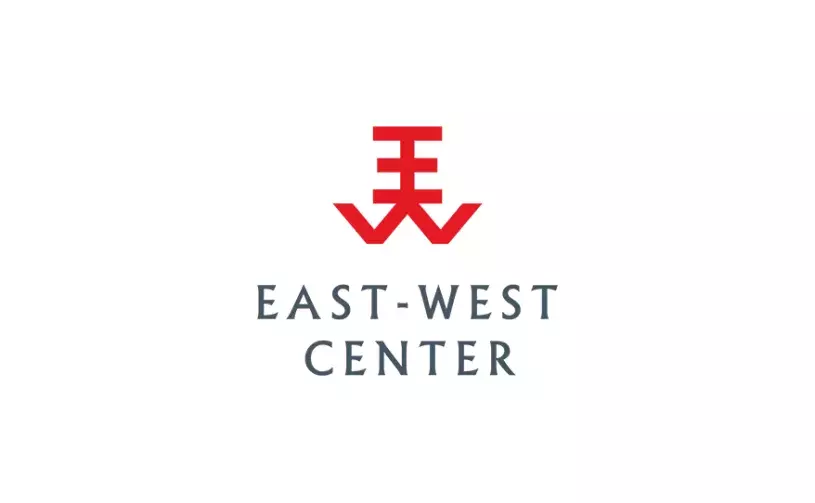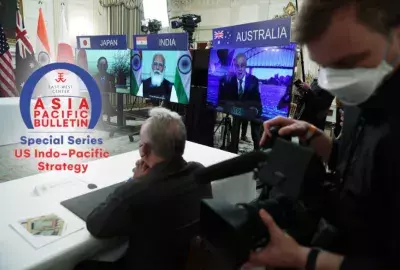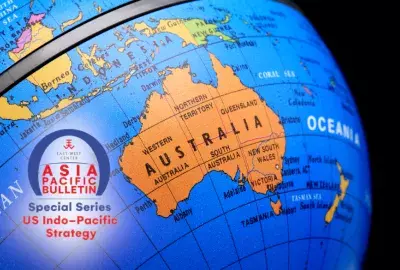Error message

|
Chheang Vannarith, President of Asian Vision Institute, Phnom Penh, explains that "before the imposition of the latest round of United Nations sanctions on North Korea, the relationship with Cambodia had helped Pyongyang maintain access to trade.” |
Cambodia is among the five Southeast Asian countries that have an embassy in Pyongyang. The bilateral relationship has fluctuated over time, due to three factors: leadership, economics, and geopolitics. The late King Norodom Sihanouk and Kim Il-sung were the architects of the bilateral relationship after their first encounter at the Non-Aligned Movement (NAM) meeting in Belgrade in 1961. The relationship flourished from 1965 to early 1990s, as both countries stood on the same side during the Cold War. The new coalition government in Cambodia, established after the UN-supervised general election in 1993, continued to maintain good relations with North Korea, with both sides signing an agreement to create the Cambodia-DPRK Joint Committee to strengthen bilateral ties.
In the past, and before the imposition of the latest round of United Nations sanctions on North Korea, the relationship with Cambodia had helped Pyongyang maintain access to trade. In 1994, a privately-owned shipping company — the Cambodia Shipping Corporation — was the main vehicle for North Korea to do trade by using the Cambodian “flag of convenience.” North Korea enjoyed royal protection as the company was founded and headed by Khek Vandy, the husband of Sihanouk’s eldest daughter, Boupha Devi. Later it was run by Khek Sakara (son of Khek Vandy) in a joint venture with a North Korean diplomat. Due to some security concerns (especially over illegal trafficking), irregularities, and international pressure, the Cambodian government decided to shut down the company in 2002 when a new company called International Ship Registry of Cambodia was formed to replace Cambodian Shipping Corporation. In 2016, the company was shut down after a series of reports of illegal trafficking using ships bearing the Cambodian flag. Cambodia, however, has to implement the United Nations Security Council Resolutions on North Korea.
Despite the past history of trade ties, today bilateral economic ties are miniscule. In 2016, the bilateral trade volume was only $2 million, of which Cambodia exported US$1.88 million. In addition, there are two Pyongyang-style restaurants in Siem Reap and four in Phnom Penh, and a joint venture of $24 million in Angkor Panorama Museum in Siem Reap.
If United Nations sanctions on North Korea remain in place, bilateral economic ties between Cambodia and North Korea will not improve. The commercial aspect of the bilateral relationship has been gradually less relevant over time due to the lack of high-level exchanges and political engagement. The relationship has especially declined since 2000 after King Sihanouk abdicated in 2004 due to his poor health. More importantly, Cambodia currently gives more priority to South Korea for its economic interests. The current generation of leadership in both Pnom Penh and Pyongyang do not seem to see much need for each other and share few convergent interests to advance a comprehensive bilateral engagement.
The easing of tensions on the Korean Peninsula after the first summit between South Korean President Moon Jae-in and North Korean leader Km Jong-un in April 2018, and the subsequent meetings between North Korean leader with other major powers (especially China and the United States) provides a favorable condition for regional countries to engage both South and North Korea. Cambodia’s Prime Minister Hun Sen has stated several times at various international platforms that peace and stability on the Korean peninsula is vital to regional peace and stability beyond Northeast Asia.
Cambodia’s foreign policy toward North Korea is heavily influenced by China’s strategic calculation and “tacit approval.” As observed by Jack Board of Channel NewsAsia: “From what was once a warm mutual friendship, current ties are far more uncertain, underpinned by global tensions and leveraged by the region’s main power player, China.” For instance, after China issued a strong statement against North Korea’s nuclear tests, Cambodia also started taking a relatively hard approach towards North Korea. In September 2017, Cambodia’s Ministry of Foreign Affairs and International Cooperation (MOFAIC) issued a statement condemning North Korea’s nuclear tests: “This sixth nuclear test is a repeated violation of the relevant United Nations Security Council resolutions and poses a threat to peace and stability on the Korean peninsula and in the region as a whole and will further deteriorate the already tense situation.” Cambodian Prime Minister Hun Sen also raised concern saying that “I hope the world will be calm through a constructive dialogue and perhaps a small country like Cambodia is not a target for nuclear attack from North Korea or terrorism. I hope so.”
From the Cambodian perspective, ASEAN has a relevant role to play in managing the tensions on the Korean peninsula, especially through diplomatic means. The ASEAN Regional Forum (ARF) of which North Korea is a member, is the only platform in which regional chief diplomats can directly interact with their counterpart from North Korea. In 2012, when Cambodia was the chair of ASEAN, Foreign Minister Hor Namhong led a delegation to visit North Korea, with the aim to build mutual trust between ASEAN and North Korea.
With increasing international pressures and sanctions on North Korea during 2017, the North Korean embassy in Phnom Penh requested Cambodia as a member of ASEAN to help provide diplomatic solutions to the Korean Peninsula. In an interview with a local English newspaper, Khmer Times, a day after North Korea’s Foreign Minister Ri Yong-Ho sent an official letter to ASEAN Secretary General Le Luong Minh to seek support from ASEAN on April 28, 2017, the North Korean ambassador said, “I am confident that Cambodia, as a friend, really understands the tensions on the Korean peninsula and would express solidarity through ASEAN towards our just cause to help find a solution diplomatically to maintain stability and peace in our country.”
Looking forward, if the international sanctions on North Korea are not removed, economic ties between Cambodia and North Korea will remain miniscule, which in turn affects the overall bilateral relationship. Economic interests, not ideological interest, are the main objectives of Cambodia’s foreign policy. Cambodia’s future response to North Korea will be collectively influenced by the positions of China, the UN, ASEAN, and South Korea. Cambodian government has expressed support for the peaceful settlement and complete denuclearization on the Korean Peninsula.
|
Chheang Vannarith, President of Asian Vision Institute, Phnom Penh, explains that "before the imposition of the latest round of United Nations sanctions on North Korea, the relationship with Cambodia had helped Pyongyang maintain access to trade.” |
Cambodia is among the five Southeast Asian countries that have an embassy in Pyongyang. The bilateral relationship has fluctuated over time, due to three factors: leadership, economics, and geopolitics. The late King Norodom Sihanouk and Kim Il-sung were the architects of the bilateral relationship after their first encounter at the Non-Aligned Movement (NAM) meeting in Belgrade in 1961. The relationship flourished from 1965 to early 1990s, as both countries stood on the same side during the Cold War. The new coalition government in Cambodia, established after the UN-supervised general election in 1993, continued to maintain good relations with North Korea, with both sides signing an agreement to create the Cambodia-DPRK Joint Committee to strengthen bilateral ties.
In the past, and before the imposition of the latest round of United Nations sanctions on North Korea, the relationship with Cambodia had helped Pyongyang maintain access to trade. In 1994, a privately-owned shipping company — the Cambodia Shipping Corporation — was the main vehicle for North Korea to do trade by using the Cambodian “flag of convenience.” North Korea enjoyed royal protection as the company was founded and headed by Khek Vandy, the husband of Sihanouk’s eldest daughter, Boupha Devi. Later it was run by Khek Sakara (son of Khek Vandy) in a joint venture with a North Korean diplomat. Due to some security concerns (especially over illegal trafficking), irregularities, and international pressure, the Cambodian government decided to shut down the company in 2002 when a new company called International Ship Registry of Cambodia was formed to replace Cambodian Shipping Corporation. In 2016, the company was shut down after a series of reports of illegal trafficking using ships bearing the Cambodian flag. Cambodia, however, has to implement the United Nations Security Council Resolutions on North Korea.
Despite the past history of trade ties, today bilateral economic ties are miniscule. In 2016, the bilateral trade volume was only $2 million, of which Cambodia exported US$1.88 million. In addition, there are two Pyongyang-style restaurants in Siem Reap and four in Phnom Penh, and a joint venture of $24 million in Angkor Panorama Museum in Siem Reap.
If United Nations sanctions on North Korea remain in place, bilateral economic ties between Cambodia and North Korea will not improve. The commercial aspect of the bilateral relationship has been gradually less relevant over time due to the lack of high-level exchanges and political engagement. The relationship has especially declined since 2000 after King Sihanouk abdicated in 2004 due to his poor health. More importantly, Cambodia currently gives more priority to South Korea for its economic interests. The current generation of leadership in both Pnom Penh and Pyongyang do not seem to see much need for each other and share few convergent interests to advance a comprehensive bilateral engagement.
The easing of tensions on the Korean Peninsula after the first summit between South Korean President Moon Jae-in and North Korean leader Km Jong-un in April 2018, and the subsequent meetings between North Korean leader with other major powers (especially China and the United States) provides a favorable condition for regional countries to engage both South and North Korea. Cambodia’s Prime Minister Hun Sen has stated several times at various international platforms that peace and stability on the Korean peninsula is vital to regional peace and stability beyond Northeast Asia.
Cambodia’s foreign policy toward North Korea is heavily influenced by China’s strategic calculation and “tacit approval.” As observed by Jack Board of Channel NewsAsia: “From what was once a warm mutual friendship, current ties are far more uncertain, underpinned by global tensions and leveraged by the region’s main power player, China.” For instance, after China issued a strong statement against North Korea’s nuclear tests, Cambodia also started taking a relatively hard approach towards North Korea. In September 2017, Cambodia’s Ministry of Foreign Affairs and International Cooperation (MOFAIC) issued a statement condemning North Korea’s nuclear tests: “This sixth nuclear test is a repeated violation of the relevant United Nations Security Council resolutions and poses a threat to peace and stability on the Korean peninsula and in the region as a whole and will further deteriorate the already tense situation.” Cambodian Prime Minister Hun Sen also raised concern saying that “I hope the world will be calm through a constructive dialogue and perhaps a small country like Cambodia is not a target for nuclear attack from North Korea or terrorism. I hope so.”
From the Cambodian perspective, ASEAN has a relevant role to play in managing the tensions on the Korean peninsula, especially through diplomatic means. The ASEAN Regional Forum (ARF) of which North Korea is a member, is the only platform in which regional chief diplomats can directly interact with their counterpart from North Korea. In 2012, when Cambodia was the chair of ASEAN, Foreign Minister Hor Namhong led a delegation to visit North Korea, with the aim to build mutual trust between ASEAN and North Korea.
With increasing international pressures and sanctions on North Korea during 2017, the North Korean embassy in Phnom Penh requested Cambodia as a member of ASEAN to help provide diplomatic solutions to the Korean Peninsula. In an interview with a local English newspaper, Khmer Times, a day after North Korea’s Foreign Minister Ri Yong-Ho sent an official letter to ASEAN Secretary General Le Luong Minh to seek support from ASEAN on April 28, 2017, the North Korean ambassador said, “I am confident that Cambodia, as a friend, really understands the tensions on the Korean peninsula and would express solidarity through ASEAN towards our just cause to help find a solution diplomatically to maintain stability and peace in our country.”
Looking forward, if the international sanctions on North Korea are not removed, economic ties between Cambodia and North Korea will remain miniscule, which in turn affects the overall bilateral relationship. Economic interests, not ideological interest, are the main objectives of Cambodia’s foreign policy. Cambodia’s future response to North Korea will be collectively influenced by the positions of China, the UN, ASEAN, and South Korea. Cambodian government has expressed support for the peaceful settlement and complete denuclearization on the Korean Peninsula.







